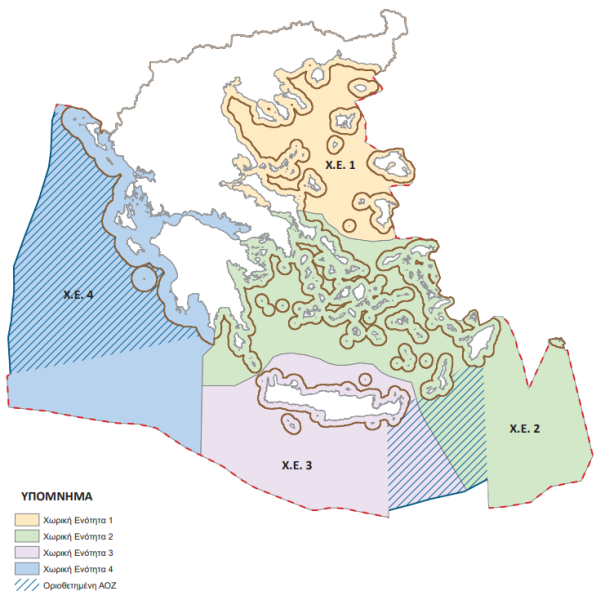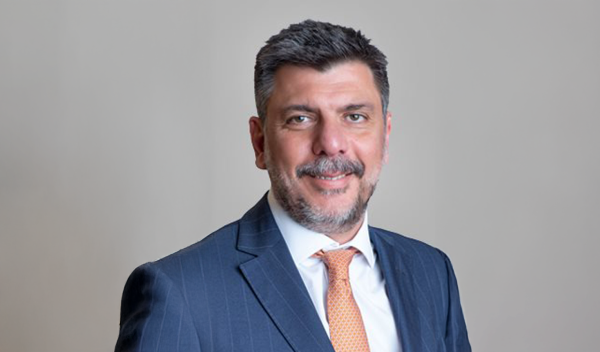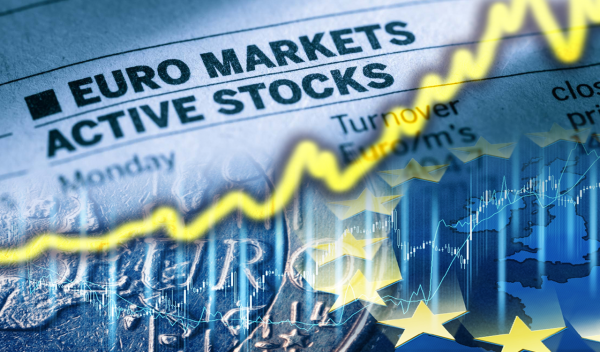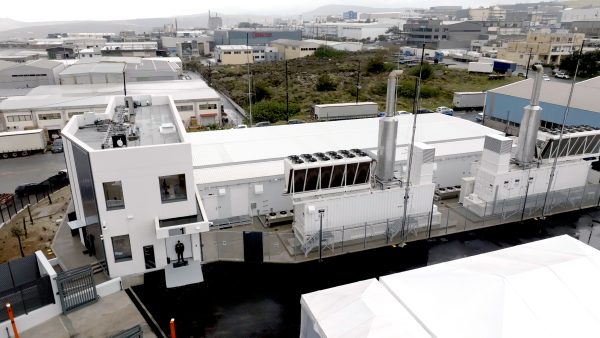
The president of the European Bank for Reconstruction and Development (EBRD), Odile Renaud-Basso, assesses the progress of the reforms in Greece as particularly impressive, speaking exclusively to the Athenian-Macedonian News Agency.
“There has been a huge reform agenda implemented by the current government,” Ms. Renaud-Basso said, referring to the progress made in matters of digital transition in public administration, in the governance of public companies, such as PPC.
“The reform process has been very serious, very credible and Greece’s ability to attract international investors has changed completely. Particularly symbolic of this was the acquisition of Viva Wallet by J.P. Morgan “, noted the president of the EBRD.
Worsening forecasts
Although revised for the worse, due to the current crisis, the EBRD forecasts for the growth of Greek GDP this year are 2.9% and 3.5% for 2023. At the same time, as the president of the bank pointed out, during the meetings with the Greek government it became clear that the goal of de-lignification and the green transition of the country remains unchanged, both in terms of central targeting and strategies as well as timeline.
Finally, Ms. Renaud-Basso made extensive reference to the case of Ukraine and the role that the bank plays today in maintaining economic activity on track and the role that it will play in the future in the reconstruction of Ukraine and its economy.
Following is the full text of the interview given at the 7th Delphi Economic Forum by the President of the EBRD, Odile Renaud-Basso, to the Athenian-Macedonian News Agency and NG Drossos.
Q. The European Bank for Reconstruction and Development (EBRD) funds a number of large and small projects in Greece, including the energy sector. What are your assessments regarding the effects of the current crisis on the development of the Greek economy and the future of these programs?
A. The current war-related crisis [in Ukraine] will certainly have repercussions everywhere. That, I think, is clear. It will, of course, have a huge impact on the development of Ukraine, it will have a huge impact on the development of Russia and it will of course have an impact on neighboring countries. Overall, there will be impacts on the global economy and in countries like Greece, mainly through energy prices. As there is a big shock in fuel prices. So we revised our forecasts for Greece, as the country continues to emerge from the pandemic with very strong growth, last year, and so we continue to see growth in clearly positive ground in 2022 with 2.9% and 3.5% for 2023 but of course lower than would normally be the case, i.e. without the crisis.
Q. To what extent? How much was “deducted” from your forecast?
A. 1% was deducted but as you say we have been very involved in the energy sector, for the transformation of the energy sector, and I believe that there is a huge transformation of the sector, guided by the very clear strategy of the government, through de-lignification, development of Renewable Energy Sources (RES), as it applies to key companies in the energy sector, PPC, ELPE, and we believe that the direction and the main targeting will remain and the companies to which we refer will remain in their targeting. So there may be some short-term effects of lignite adjustment in the very short term, but the focus, strategies, timeline, etc., I think remain.
Q. So, Mrs. Mr. President, the central axis is that you will continue your policy “as is” in relation to Greece and that the “to and fro” in the energy sector with the case of lignite, which you mentioned, will not affect current investments.
A. We are not investing and we are not going to invest in this sector (lignite) and I do not think there will be new investments in this sector but we are financing renewable energy sources and the sustainability policy for companies [of the sector] ( refinancing, green bond issues for PPC, etc.). This will continue and I think the current situation will boost investment in RES and this country has huge potential in this area.
Q. Were these issues addressed during your recent contacts with the Greek government?
A. Yes.
Q. And what were the main conclusions?
A. We see that the government has implemented a huge reform agenda. I was particularly impressed by the (progress in) the digital transition, in management, we also discussed the “green agenda” which is a huge reform, the progress that has been made in the governance of public companies. When you see the transformation of PPC it is very impressive.
The reform process has been very serious, very credible and Greece’s ability to attract international investors has changed completely. Particularly symbolic of this was the acquisition of Viva Wallet by J.P. Morgan.
Of course, when faced with successive crises, such as the pandemic, energy prices, new challenges for economies, etc., but I think the government’s response in terms of providing support to the effects of the pandemic, not only in Greece but in the EU in general, was particularly effective in continuing economic activity and preventing collapse. I think that was the right answer.
Q. In light of your position, the problems are common to all, inflation is hitting everyone, do you think there should be an immediate united European response and then?
A. I think there is a single European reaction to energy efficiency, to the expansion of energy sources beyond Russia. Now in terms of support, I think the good thing about the case, in a nutshell, is that the RRF is now starting to take effect. You know the RRF was created to deal with the pandemic crisis but with all the negotiation, implementation, etc., the disbursement is starting now and so the impact on the economy will now begin.
Earlier the effect was more on boosting confidence, as the fact that there was a single European response to the crisis was a big step forward and gave a very strong signal of confidence, but the investment will now start and I think that will help a lot. So let’s start and see if there is a need for further follow – up. This is something that should be discussed, but I really agree that having a coordinated European response on all fronts is very important. It has been very successful in the pandemic and must continue.
Latest News

Greek €200M 10Y Bond to be Issued on April 16
The 3.875% fixed-interest-rate bond matures on March 12, 2029, and will be issued in dematerialized form. According to PDMA, the goal of the re-issuance is to meet investor demand and to enhance liquidity in the secondary bond market.

German Ambassador to Greece Talks Ukraine, Rise of Far Right & Tariffs at Delphi Economic Forum X
Commenting on the political developments in his country, the German Ambassador stressed that it was clear the rapid formation of a new government was imperative, as the expectations across Europe showed.

Athens to Return Confiscated License Plates Ahead of Easter Holiday
Cases involving court orders will also be excluded from this measure.

Servicers: How More Properties Could Enter the Greek Market
Buying or renting a home is out of reach for many in Greece. Servicers propose faster processes and incentives to boost property supply and ease the housing crisis.

Greek Easter 2025: Price Hikes on Lamb, Eggs & Sweets
According to the Greek Consumers’ Institute, hosting an Easter dinner for eight now costs approximately €361.95 — an increase of €11 compared to 2024.

FM Gerapetritis Calls for Unified EU Response to Global Crises at EU Council
"Europe is navigating through unprecedented crises — wars, humanitarian disasters, climate emergencies," he stated.

Holy Week Store Hours in Greece
Retail stores across Greece are now operating on extended holiday hours for Holy Week, following their Sunday opening on April 13. The move aims to accommodate consumers ahead of Easter, but merchants remain cautious amid sluggish market activity.

Green Getaway Ideas for Easter 2025 in Greece
Celebrate Easter 2025 in Greece the sustainable way with eco-farms, car-free islands, and family-friendly getaways rooted in nature and tradition.

Civil Protection Minister Details Summer Firefighting Plans at Delphi Forum
At the 10th Delphi Economic Forum, Minister of Climate Crisis and Civil Protection Yiannis Kefalogiannis discussed Greece's plans for the upcoming fire season.

How Shops and Markets Will Operate During Easter Holy Week
The Easter holiday schedule has been in effect since April 10, with retail stores open Palm Sunday, and most supermarkets also operating to meet consumer demand for Easter shopping









































 Αριθμός Πιστοποίησης
Αριθμός Πιστοποίησης